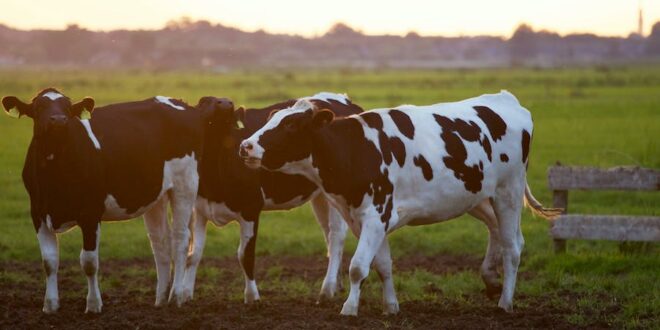There is a lot of debate regarding human milk vs cow milk and how they differ. For decades, humans have fed cow and human milk to infants, and it is only recently that people have taken a keener look to spot a difference between the two.
Cow milk significantly contributed to the domestication of cattle since it can be processed into many different products.
From yogurt to cheese, cow milk is an invaluable art of human cuisine in many cultures, so what does it share with human milk? Let’s find out;
Human Vs. Cow Milk
Human milk is, for many reasons, the better choice for children since it is biologically designed for them. All the mineral concentration and protein elements are in the perfect ratio to give the best results without straining the child’s body.
Cow’s milk is most beneficial when children are older, but human milk should be the primary choice for the first 8 months of their life.
Differences Between Human Milk And Cow Milk
For adults, the only option is cow’s milk, which offers many benefits to the body. But what about the young ones?
What are the differences between human and cow milk that make it advantageous or problematic for them? Let’s get into the details and find out;
Calcium And Iron Concentrations
Cow’s milk has nearly four times the calcium content of human milk. This is because calves have bigger skeletons and grow much faster than humans; thus, they need more calcium to support their growth rate.
This high calcium content is why cow’s milk is not recommended for children under 12 months, as it strains the body. Human milk has lower calcium levels, but it can be absorbed more easily by the body.
On the other hand, cow’s milk has very little iron, and a child would have to take over 30 pints of cow’s milk regularly to meet the RNI of 5.3mg of iron. Cow milk also has lower concentrations of vitamins A, C, and D, crucial in early childhood development.
The high sodium, Chloride, potassium, and phosphorus concentration in cow’s milk creates a high renal solute load. This means there is a lot of strain on the kidneys, and they have to draw water from the body, which could cause dehydration.
Fat
The type and amount of fat in a mammal’s milk depends on the species and what an infant needs. Milk has 3 kinds of fats: primarily saturated, monounsaturated, and polyunsaturated.
Cow’s milk has more saturated fats and less unsaturated than human milk, which is part of why cow’s milk isn’t best for human infants.
Unsaturated fatty acids are crucial for brain development in humans. That’s why they are in higher concentration in human milk.
The brain is mainly made up of fat, so there needs to be an ample supply of it in the early years of development as the brain grows faster than the body.Omega-6 and three fatty acids that help brain function and development are present in human milk nut, not cow milk.
Cow’s milk has shorter chain omega 6 and 3 fatty acids, but the body has to convert them to long chain versions to be used in the body.
Milk Protein Concentration
One of the most significant differences between human and cow milk is the concentration of milk proteins, whey, and casein. There is less concentration of casein in human milk since this protein is complex for humans to digest.
Casein offers more benefits to cows, so they are better adapted to digest it, which leads to a higher concentration in cow milk. Whey helps in growth, and babies easily digest it; hence, it is in higher concentration in human milk.
Alpa-lactalbumin is another milk protein whose concentration differs between cow and human milk. This protein constitutes 20 to 28 percent of human milk but only 2 to 5% of cow milk.
Alpha-lactalbumin is crucial in bonding minerals like magnesium and calcium; it blocks the growth of various pathogens in children and supports the immune system. These are elements that make it crucial for child development.
Protein Concentration
Human milk contains approximately a third of cow’s milk’s protein. Humans grow relatively slower compared to calves.
A human child will double its weight in 180 days from birth. They will mostly rely on carbohydrates and fat, which are abundant in human milk.
This means proteins in human milk are more sustainable since the baby’s kidney can’t handle too much protein. Calves, on the other hand, will double their weight in just 40 days. This means they will need a lot of proteins to grow fast, and that’s why there is more protein in cow milk.
This difference in protein levels causes growth differences between formula-fed and breastfed children. Formula-fed children grow faster, but the slower growth rate of breastfed children has several long-term advantages.
The Critical Role Of Human Milk In Infant Development
Despite its many advantages, cow milk is nowhere near as good for infants as human milk. Human milk is a result of years of evolution, and it is tailored to meet the unique needs of a developing child.
There is only a tiny difference between human and cow milk, enough to change how a child develops.
Children who take breast milk are less likely to suffer from allergic reactions, obesity, and diabetes compared to children who use formula.
The milk used in infancy can affect a child’s health later in life. This is why most experts recommend that children get breast milk for the first 6 to 12 months of their life and longer if the mother can support it.
Human milk has a genuinely remarkable nature that cow milk can’t match. The nature of human milk changes as the baby grows so that the milk at the beginning of nursing differs from that at the end.
This allows the child to get specific nutrients in levels that work best at their age for the best results.
The initial milk has high lactose concentrations, while the hindmilk has more fat. This is so that the foremilk ensures the baby isn’t thirsty and the hindmilk provides nutrients.
Infants’ developmental and dietary needs are constantly changing; thus, milk must be very complex to meet these needs. This means that every mother’s milk will be slightly different to meet the baby’s specific needs.
Human milk wraps up all the hormones a child needs to develop. It has hormones such as obestatin, ghrelin, leptin, resistin, and adiponectin, which play crucial roles in energy balance, metabolism, and food intake.
So, if you ever had to choose between human milk and cow milk, you should go with human milk.
Cow’s milk is better for adults with fully formed organs to process it. Children will have more difficulty processing it, which can compromise their health.
Advantages Of Cow’s Milk To Children
Cow’s milk works best if given to a child over a year old. Their anatomy is relatively more robust now, and it can handle digestion. So, what benefits does cow’s milk offer to growing children?
1. It Promotes Growth
Cow’s milk is meant to help calves grow rapidly and will have the same effect on babies. Cow’s milk has growth hormone and insulin growth factors that can help children grow faster in their early years. Calcium ensures the growth of strong bones, which creates a good base.
2. Supports Brain Development
Cow’s milk has a high Vitamin B complex concentration, critical for the nervous system, brain cells, and sleep cycle regulation. The healthy fat in whole milk will help develop neurons in babies between 1 and 2 years old.
3. Stronger Teeth
Cow’s milk has high phosphorus and calcium concentrations that help develop teeth. The casein in cow’s milk creates a protective film over teeth and protects them from acidic founds that would otherwise erode them.
This layer also prevents the leeching of phosphorus and calcium from the teeth, ensuring they stay strong and healthy.
4. Boosts Immunity
Young children need lots of Vitamin A to help them build an effective immune system. Cow’s milk is a good source of retinol vitamin A. This means adding milk to your child’s diet will help them fight off infections in the future.
Young children get exposed to a lot of germs in schools and playgrounds, so a robust immune system can come in handy.
Conclusion
All the information in this article should have cleared up the human milk vs cow milk argument to help you make better choices.
When it comes to infants, human milk is the best choice. It is specifically tailored to meet the child’s needs; therefore, they will grow stronger.
Cow milk is also an option, but its high protein concentration makes it ideal for adults with higher metabolism.
Human milk lays a better foundation for children and will lead to healthier adults, while cow’s milk leads to faster growth with risks of compromised health.
 Being Human
Being Human





